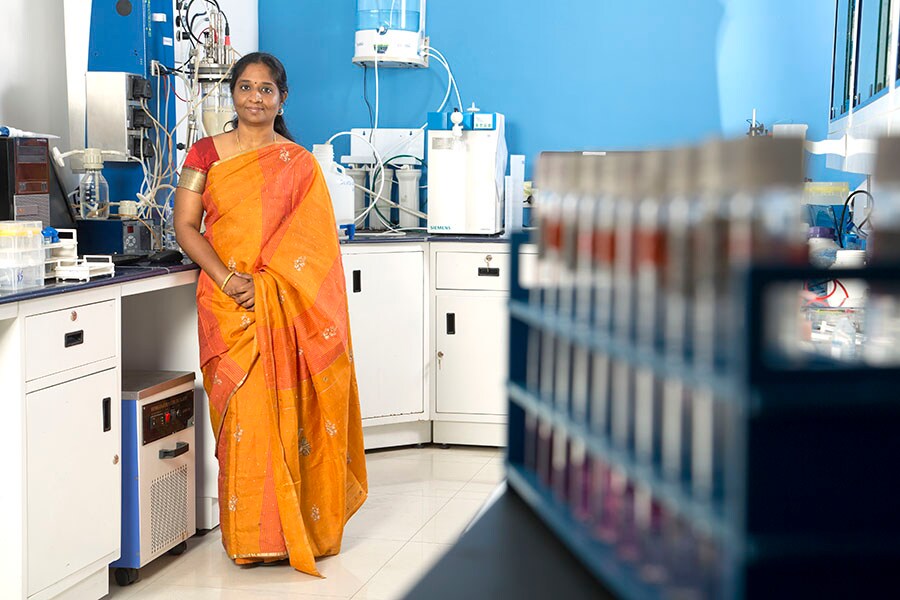
2018 W-Power Trailblazers: Kavitha Sairam is addressing age-old problems of agriculture
With its nanofibre solutions, FIB-SOL aims to develop efficient carrier systems for bio-fertilisers
 Image: Ravi Kumar for Forbes India
Image: Ravi Kumar for Forbes India
Kavitha Sairam
Age: 40
Co-founder, FIB-SOL Life Technologies
The name FIB-SOL stands for fibre solutions, explains Kavitha Sairam. And it stands for two things: One, FIB-SOL, the venture she co-founded that provides nanofibre solutions to problems in agriculture and eventually in health care, and second, the fact that it provides both the proprietary nanofibre material and solutions around it.
Last December, Sairam, 40, and her co-founder Anant Shyam Raheja won the top prize in India’s first National Bio Entrepreneurship Competition. That got them ₹10 lakh in prize money from Ankur Seeds, and also the opportunity to negotiate a $100,000 funding round from the Tata Trust-backed Social Alpha, with mentoring thrown in. The startup has raised around ₹1.1 crore via grants and awards.
The current product it is working on, and the problem it is looking to tackle, is related to biofertilisers. These are bacteria that provide plants with macronutrients (nitrogen, phosphorous and potassium) in a natural way. “The problem is with the carriers in which the biofertilisers are hosted,” Sairam says from Chennai, where her venture is being incubated at IIT.
Today materials such as lignite, peat and talc are used to hold on to the bacteria. They are poor hosts though and the bacteria die in them fast. Therefore, “by the time the farmer applies the fertilisers, the bacteria are useless”.
“We have these nanofibres, where we actually entrap the bacteria in such a manner that they are protected from external adverse conditions and stabilised,” says Sairam, who is a PhD from IIT-Madras.
To Check Out The Full 2018 W-Power Trailblazers List, Click Here
To Read The Overview of the 2018 W-Power Trailblazers List, Click Here
Further, nanofibres, because of the nature of their structure, provide high surface area and are able to carry a large volume of bacteria. “The main invention for which we hold a patent at FIB-SOL is the process of entrapping a high payload,” says Sairam.
What impressed the jurors at the competition was that “it was a simple solution, for a well-identified problem, well thought through, and with immediate market application”, says Taslimarif Saiyed, CEO and director of Centre for Cellular and Molecular Platforms.
Over the last four months, FIB-SOL has begun to commercialise its product. The next step is to increase production capacity to make enough biofertilisers for 20,000 acres per month, which will take another six months. Current capacity is about 300 acres a month. “We want to target the B2C model comprising single farmers with large landholdings,” says Sairam, adding that the next step will be to partner larger fertiliser companies.
(This story appears in the 30 November, -0001 issue of Forbes India. To visit our Archives, click here.)





